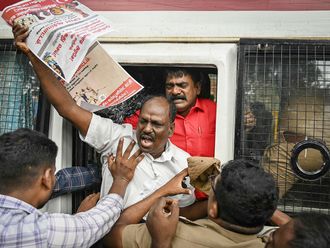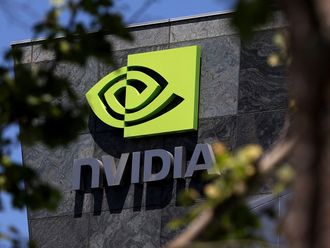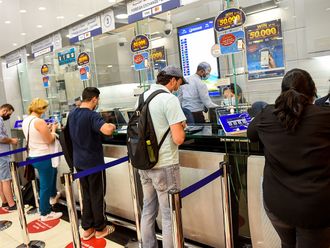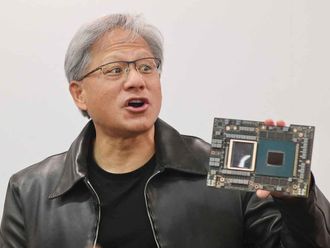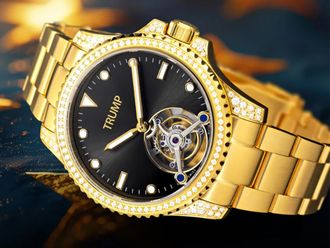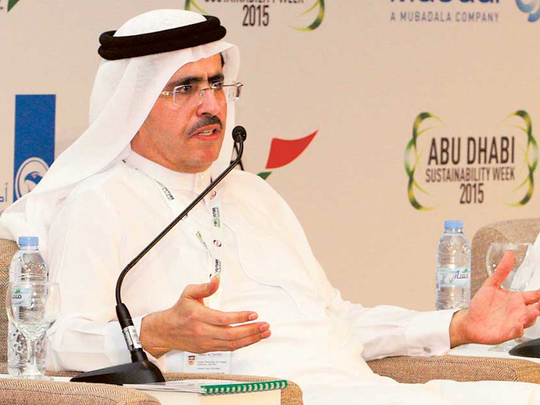
Dubai: Dubai has tripled its target to increase the share of renewables to 15 per cent in its energy mix by 2030, a senior official announced here on Wednesday. The emirate has increased its 2020 target also by seven times to 7 per cent, apparently due to falling costs of solar energy, according to Saeed Mohammad Al Tayer, managing director and chief executive officer of Dewa (Dubai Water and Electricity Authority).
The announcement gains relevance as it negates the speculation that falling oil prices in the international market will affect the growth of the renewable energy sector.
Dubai’s Integrated Energy Strategy 2030 had earlier set targets for renewable energy (mainly solar) to supply one per cent of energy mix and five per cent by 2030.
Al Tayer announced the higher targets for renewables during a panel discussion at the World Future Energy Summit 2015 on Wednesday.
He also announced that Dewa will release a bid for 500MW photovoltaic (PV) project in 2016 in the Independent Power Producer (IPP) model.
Investments in Dubai’s energy sector are expected to surpass Dh56 billion over the next five years to meet Dubai’s growing demand on water and power. This will boost the green economy and create a competitive advantage for the UAE in clean energy technology and energy efficiency, Al Tayer said.
The higher targets for renewables follows Dewa’s announcement to double the capacity of the phase two of the Mohammad Bin Rashid Al Maktoum Solar Park from 100 to 200MW. It is one of the biggest strategic new Independent Power Producer (IPP) projects in the renewable energy market worldwide. The consortium led by Saudi Arabia’s ACWA and Spain’s TSK was selected as a Preferred Bidder with the lowest price. Dewa said this reflected the trust and interest of international investors in Dubai and Dewa, its transparency in all its projects and its strong financial position.
ACWA and TSK consortium was selected based on alternative proposal for 200MW with LCOE of 5.84869 USD cents/kWh.
“Dewa managed to get the lowest price thanks to the global trust it enjoys and the encouraging regulations that protect the rights of all parties, Al Tayer said.
Drop in costs
“Dewa works to achieve the strategy of the Supreme Council of Energy in Dubai to diversify the energy mix and reduce consumption by 30 per cent by 2030 and we are on track to surpass the previous targets. The UAE, represented by Dewa, has been ranked first in the Middle East and North Africa and fourth globally, for the second consecutive year, in getting electricity as per the World Bank’s Doing Business Report. Dewa has a 90 per cent fuel consumption efficiency rate,” Al Tayer said.
Highlighting the significant fall in renewable energy costs in recent years, Al Tayer said the prices of PV (photovoltaic) panels have dropped by 60 per cent since 2011.
Dewa’s smart grid initiative with Dh7 billion investments the Smart Dubai initiative along with Dewa’s smart initiatives of producing solar electricity in buildings and homes and connecting them to the grid, and building the infrastructure for electric car charging stations. He noted that renewable energy resources create more jobs in the UAE.
Razan Khalifa Al Mubarak, Secretary General of the Environment Agency Abu Dhabi, and Mohammad Al Ramahi, Chief Operating Officer of Masdar, also participated in the discussion panel, which was attended by Dr Sultan Al Jaber, Minister of state and CEO of Masdar.


